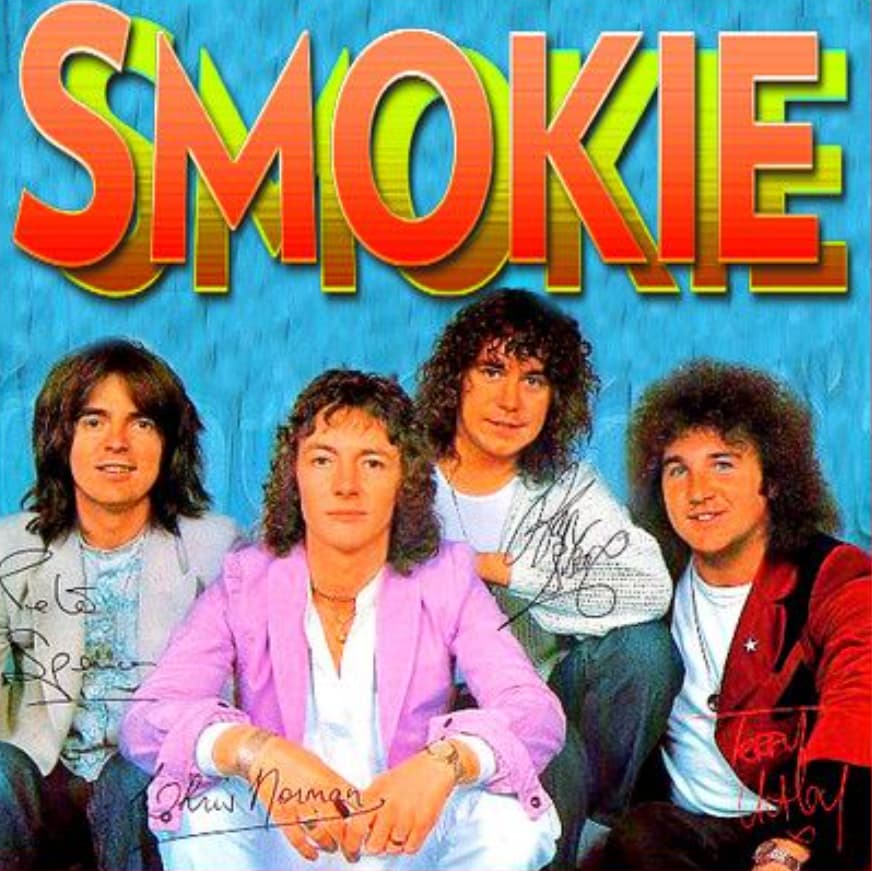
When Silence Speaks Louder Than Any Rock ‘N’ Roll Beat
Ah, Smokie. Just the name itself conjures up a particular warmth, doesn’t it? For many of us, their music is intrinsically woven into the fabric of our youthful memories, a soundtrack to countless evenings filled with innocent dreams and burgeoning emotions. Today, we’re casting our minds back to one of their truly iconic tracks, a song that, upon its release, struck a chord with audiences worldwide and remains a beloved classic: “Don’t Play Your Rock ‘N’ Roll To Me.”
Released in 1975, this gem quickly climbed the charts, reaching a respectable number 8 in the UK Singles Chart. While it may not have topped the charts, its enduring popularity and ubiquitous presence on airwaves for decades afterwards cemented its status as one of Smokie‘s signature tunes. It was a standout track from their album “Bright Lights & Back Alleys,” an album that showcased the band’s distinctive blend of melodic rock and harmony-laden pop.
But what truly lies beneath the surface of this seemingly simple declaration? The song, penned by the prolific songwriting duo of Nicky Chinn and Mike Chapman, is often interpreted as a commentary on the changing landscape of music, a gentle yet firm rejection of the burgeoning rock ‘n’ roll scene by someone perhaps more accustomed to, or preferring, a different kind of sound. Imagine the mid-70s: the airwaves were increasingly filled with a harder, more electric edge, a departure from the more folk-infused or pop-oriented sounds that had preceded it. For some, this new wave was exhilarating; for others, it was jarring, perhaps even a little aggressive.
The lyrics paint a vivid picture of this sentiment. We hear of a man, seemingly content in his own world, being confronted by a musical style that feels alien and intrusive. Lines like “I don’t mind your simple pleasures, / I don’t care about your treasures, / But please don’t play your rock ‘n’ roll to me” speak volumes. It’s not a dismissive or angry rejection, but rather a weary plea for peace and quiet, a desire to retreat into a more familiar and comforting sonic space. This isn’t about disliking music itself; it’s about disliking that particular kind of music being imposed upon him. It’s the sentiment of someone who values quiet reflection over boisterous exuberance, a yearning for the familiar cadence of their own internal rhythm rather than the insistent beat of an external force.
For older readers, this resonates deeply, doesn’t it? We’ve all experienced those shifts in culture, those moments when the world seems to move in a direction that feels foreign to our own sensibilities. It might be music, fashion, or even societal norms. “Don’t Play Your Rock ‘N’ Roll To Me” becomes an anthem for those moments of gentle resistance, a quiet affirmation of one’s own identity and preferences in the face of an ever-changing world. It’s about finding solace in what you know and love, and politely, yet firmly, setting boundaries.
Moreover, the song, with its distinctive vocal harmonies and Chris Norman’s instantly recognizable lead, possesses an undeniable timeless quality. It’s not aggressive or overtly rebellious; instead, it offers a sense of introspection and a yearning for a simpler existence. The beauty of Smokie‘s delivery here lies in its understated power. They don’t preach or admonish; they simply articulate a feeling that many have shared, then and now. The arrangement, with its steady rhythm section and tasteful guitar work, provides a comforting backdrop to this narrative, making the listener feel understood rather than judged.
So, as we listen to “Don’t Play Your Rock ‘N’ Roll To Me” once more, let’s not just hear a catchy tune. Let’s remember the era it emerged from, the subtle cultural shifts it reflected, and the enduring human desire for personal space and preference. It’s a testament to Smokie’s ability to capture universal sentiments in their music, creating songs that, years later, still evoke a potent sense of nostalgia and understanding, reminding us that sometimes, the quietest requests are the most profound. It’s a gentle reminder that while the world may march to a different drum, we always have the choice to tune into our own, preferred melody.